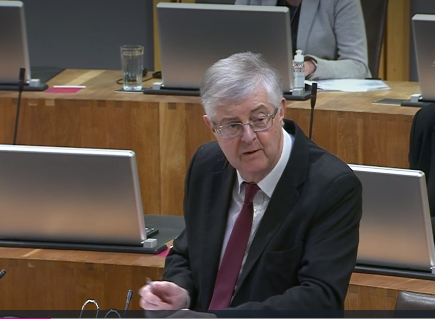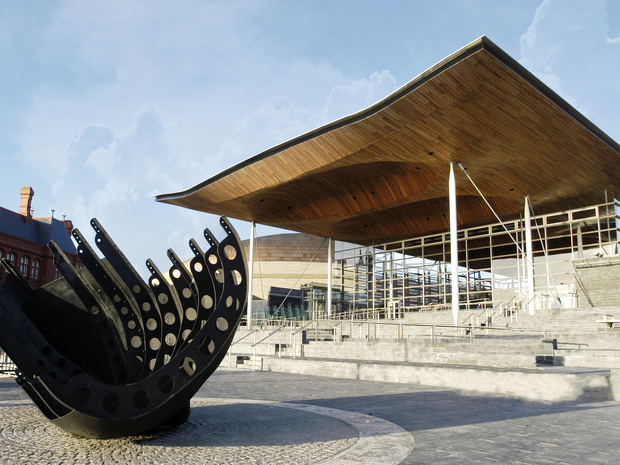Ministers urge more progress in Wales during Senedd debate
FIRST Minister Mark Drakeford has admitted that despite some “successes” at COP, the failure to curb fossil fuel extraction meant that the conference had not lived up to its ambitions.
Deputy Minister for Climate Change Lee Waters also said that despite genuine progress in some areas, the conference has shown that there is far more to do if humanity wants to avoid catastrophe.
The 26th Conference of the Parties reached a dramatic conclusion on Saturday, when a last-minute intervention from India and China weakened a commitment to end the use of coal and other fossil fuels.
The conference, which was accused of ‘green-washing’ and excluding indigenous activists, has received a mixed reaction. Boris Johnson described the deal as ‘a big step forward’, whilst activist Greta Thunberg called the conference a ‘failure’ and accused it of being a ‘PR event.’

“There are things that we hoped that COP would be able to grapple with that are now deferred to another day,” said Mr Drakeford during first ministers questions today. “Certainly, the curbing of fossil fuel extraction is one of the things COP didn’t bring off in the way that its initial ambitions would have suggested.”
“COP 26 needed to be a pivotal moment, not just for Wales but globally,” said Lee Waters.
“Whilst there was genuine progress made on methane, global finance, and shifting countries beyond oil and gas, we have far more to do to stimulate the ambition and the action needed to avoid catastrophic global warming in the lifetimes of our children”
Wales, which became to first country to declare a climate emergency in 2019, announced during the conference that it was joining eight other national and regional governments in the the Beyond Oil and Gas Alliance, an international coalition aiming to end the extraction of fossil fuels.
The country also sent several representatives to COP 26, including Future Generations Commissioner Sophie Howe.
“Wales can be proud that it was at the forefront of progressive nations at COP 26,” she said. “But now Welsh Government needs to deliver on its bold commitments and play its part in addressing the collective global failures that have left the goal to limit global warming ‘on life support’.”
“The crucial test will be how much money Welsh Government puts towards a just transition that supports everyone as we move towards a better way of life that keeps us well now and for future generations.”
The Welsh government has established a legal commitment to reach ‘net zero’ carbon emissions by 2050, and has pledged a net zero public sector by 2030.
Last month, the Welsh government published updated emissions pathways that would ensure Wales would meet its commitments under the Paris Agreement to limit global heating to 1.5 degrees above pre-industrial levels.
The Welsh Government’s moves to limit carbon emissions have not been without controversy. The decision to cancel the multi-million pound Llanbedr Linkroad project, after announcing in June that all road-building schemes would be frozen pending review, caused local outrage, with local MS Mabon ap Gwynfor calling it a “cynical stunt to get a headline during COP.”
The discussion in the Senedd comes two weeks after hundreds of climate activists marched in Cardiff on the first day of COP, to call for world leaders to take action on the climate emergency.
Wales is already beginning to feel the impact of climate change. In 2014, Fairbourne in North Wales became the first coastal community in the UK to be declared at high risk of flooding due to climate change.
Officials expect the village will have to be abandoned by 2054, with its residents likely to become the country’s first ‘climate refugees.’



